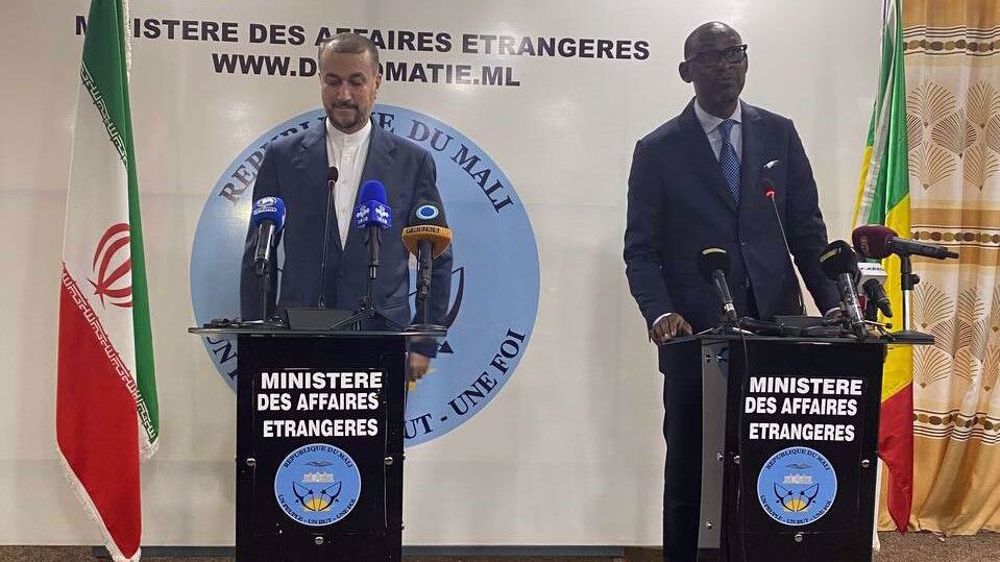 Iran's Foreign Minister Hossein Amir-Abdollahian says terrorism in the West Asia and Africa is a product of interference by extra-regional countries.
Iran's Foreign Minister Hossein Amir-Abdollahian says terrorism in the West Asia and Africa is a product of interference by extra-regional countries.
“Interference by some extra-regional countries is the reason behind formation of some terrorist groups in the West Asia region and Africa,” Amir-Abdollahian said during a joint press conference with his Malian counterpart Abdoulaye Diop in Bamako on Tuesday.
“We are of the opinion that instrumental application of terrorism should be set aside and countries be allowed to act independently,” the top diplomat added.
Separately, the official touched on the US’s illegal and inhumane sanctions against Iran, saying that the policy of imposing sanctions should give its place to one of negotiation.
“Iran has been under oppressive American sanctions for years,” he said, adding, however, that “experience has proven that the US’s sanctions have failed.”
Washington returned the sanctions in 2018 after leaving the Iran nuclear deal officially known as the Joint Comprehensive Plan of Action (JCPOA).
He also raised the issue of Iran’s bilateral ties with Mali, saying Tehran considers cooperation with the African nation in the economic, defensive, and educational fields to be among the priorities of the Islamic Republic’s diplomatic apparatus.
“We have a clear roadmap for the bilateral relations,” he noted, adding that the two countries were determined to expand their relations, and citing his trip to Mali as a token of Iran’s especial attention to the mutual ties.
The trip, which was the Iranian foreign minister’s first visit to Mali and the African continent, featured a meeting of the countries’ joint economic mission, during which the two sides agreed to expand cooperation in such areas as economy, including digital economy, transportation, rail travel, housing, urban development, and culture.
The Malian official, for his part, described application of sanctions as a “catastrophic policy,” saying, “the use of sanctions instead of dialog is wrongful.”
Concerning the mutual relations, Diop said it was in the countries’ common interest to cooperate to fight foreign interference.
“We hope that enhancement of the relations can open up new ways [for both the nations] and lead to establishment of high-priority projects in our country,” he added.
